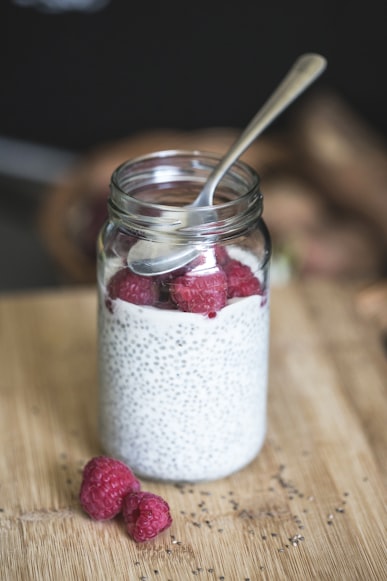Healthy Snacks for Dogs

As devoted dog owners, we want to ensure our furry companions live long, healthy, and happy lives. A crucial aspect of their well-being is providing them with nutritious and satisfying snacks.
Importance of Healthy Snacks for Dogs
Snacks offer several benefits for dogs:
- Supplemental nutrients: They can supplement essential vitamins, minerals, and antioxidants that may not be fully provided by their regular diet.
- Dental health: Some snacks, such as carrots, can promote dental hygiene by scraping away plaque and tartar.
- Mental stimulation: Snacking provides dogs with mental enrichment and can alleviate boredom.
- Bonding and training: Snacks can be used as rewards during training or as a way to connect with your pet.
Choosing Healthy Snacks
When selecting snacks for your dog, prioritize:
- Natural ingredients: Opt for snacks made with real fruits, vegetables, or lean proteins.
- Limited additives: Avoid snacks with artificial flavors, colors, or preservatives.
- Appropriate size: Snacks should be small enough to avoid choking hazards.
- Calorie content: Factor in the calories provided by snacks to maintain a healthy weight for your dog.
Recommended Healthy Snacks
Here are some healthy and delicious snacks you can give your dog:
- Fruits: Apples (without seeds), bananas, blueberries, strawberries
- Vegetables: Carrots, green beans, broccoli (cooked)
- Lean proteins: Chicken, turkey, salmon (cooked)
- Dairy: Plain yogurt (unsweetened), cottage cheese
- Other: Pumpkin puree, peanut butter (unsalted, sugar-free)
Serving Guidelines
- Moderation: Treats should not exceed 10% of your dog’s daily calories.
- Individual needs: Adjust the amount and type of snacks based on your dog’s age, size, and activity level.
- Avoid table scraps: Human food often contains ingredients that are harmful or toxic to dogs.
- Supervise: Always supervise your dog while they’re snacking to prevent choking or other accidents.
Additional Tips
- Freeze snacks: Freezing fruits and vegetables can make them more refreshing and enjoyable for your dog.
- DIY treats: Make your own healthy dog treats using simple recipes found online.
- Consult with your veterinarian: Discuss your dog’s specific dietary needs and recommended snack options with your veterinarian.
By providing your dog with healthy and fulfilling snacks, you’re contributing to their overall health, happiness, and well-being. Remember to choose snacks wisely, serve them in moderation, and enjoy the special bond you share with your furry companion.
Introduction

Introduction:
As a dog owner, you want what’s best for your furry friend. Part of that includes providing them with a healthy and nutritious diet that not only fuels their energy but also supports their overall well-being. Healthy snacks play a crucial role in supplementing their main meals, offering essential nutrients and keeping them satisfied throughout the day.
Importance of Healthy Snacks for Dogs:
- Nutritional Support: Snacks can provide additional vitamins, minerals, and antioxidants that may not be fully covered in their main meals.
- Calorie Control: Small, healthy snacks can help regulate calorie intake, preventing weight gain and obesity.
- Dental Health: Crunchy snacks can help maintain dental hygiene by scraping away plaque and tartar.
- Mental Stimulation: Treat-dispensing toys or interactive puzzles can provide mental enrichment and reduce boredom.
Essential Nutrients for Dogs:
When selecting snacks for your dog, consider their nutritional needs. The following nutrients are essential for their health and well-being:
- Protein: Essential for building and repairing tissues.
- Carbohydrates: Provide energy and fiber for digestion.
- Fiber: Supports a healthy digestive system.
- Vitamins and Minerals: Crucial for overall health and well-being.
Paw-some Healthy Snack Options:
1. Fruits:
- Apples (without seeds): Rich in fiber, vitamins, and antioxidants.
- Bananas: High in potassium and dietary fiber.
- Blueberries: Antioxidants protect against cell damage.
2. Vegetables:
- Carrots: Excellent source of beta-carotene, which supports vision.
- Sweet potatoes: Contain fiber, vitamins, and antioxidants.
- Green beans: Low in calories and rich in vitamins and fiber.
3. Meat and Fish:
- Lean chicken or turkey: High in protein and low in fat.
- Salmon: Rich in omega-3 fatty acids, which support heart health.
- Beef liver: Excellent source of iron and vitamins.
4. Other Healthy Treats:
- Yogurt: Plain, unsweetened yogurt provides probiotics for gut health.
- Peanut butter (unsweetened): Contains protein and healthy fats.
- Pumpkin puree: Rich in fiber and low in calories.
Tips for Choosing Healthy Snacks:
- Look for snacks with limited or no added sugars, salts, or preservatives.
- Choose snacks that are appropriate for your dog’s age, size, and activity level.
- Avoid snacks that contain ingredients that are toxic to dogs.
- Limit the frequency and quantity of snacks to prevent overfeeding.
Conclusion:
Healthy snacks are an essential part of a balanced diet for dogs. By providing them with paw-some options that meet their nutritional needs, you can ensure their overall well-being, keep them satisfied, and strengthen your bond with your furry companion. Remember to consult with your veterinarian before introducing new snacks to your dog’s diet.
Types of Healthy Snacks for Dogs

As dog owners, it’s essential to provide our furry companions with a healthy and balanced diet. While a nutritious kibble provides most of their dietary needs, occasional treats can enhance their well-being and strengthen the bond between us. However, not all snacks are created equal. Here are some healthy and nutritious snack options for your canine friend:
1. Fruits:
- Berries: Blueberries, strawberries, and raspberries are antioxidant-rich and contain vitamins, minerals, and fiber.
- Apples: Sliced apples are a good source of vitamins, fiber, and water.
- Bananas: Bananas provide potassium, vitamin B6, and natural sugars for energy.
2. Vegetables:
- Carrots: Crunchy and low in calories, carrots are a source of vitamin A, beta-carotene, and fiber.
- Celery: Celery is hydrating and contains vitamins, minerals, and fiber that aid digestion.
- Green beans: Rich in antioxidants and low in calories, green beans make a healthy and crunchy treat.
3. Dairy Products:
- Plain yogurt: Yogurt is a good source of probiotics, calcium, and protein. Choose unsweetened varieties.
- Cottage cheese: Cottage cheese provides a low-fat source of protein and calcium.
- Hard cheese: Small pieces of hard cheese, such as cheddar or mozzarella, can be a good source of protein and calcium.
4. Meat and Poultry:
- Cooked chicken: Plain, boiled or grilled chicken is a lean source of protein that many dogs enjoy.
- Lean ground beef: Cooked lean ground beef is a good source of protein and iron.
- Turkey: Plain, cooked turkey is a lean and easily digestible protein source.
5. Dental Treats:
- Dental chews: These treats help remove plaque and tartar from teeth, promoting dental health.
- Rawhide bones: Rawhide bones can provide mental stimulation and help clean teeth, but they should be used in moderation.
- Antlers: Antlers are a natural and durable chew that helps clean teeth and prevent boredom.
Tips for Choosing Healthy Snacks:
- Avoid snacks with added sugar, salt, or artificial ingredients.
- Choose snacks that are appropriate for your dog’s size and activity level.
- Give snacks in moderation and as part of a balanced diet.
- Monitor your dog while they are eating snacks to prevent any choking or digestive issues.
By incorporating these healthy snack options into your dog’s diet, you can provide them with a nutritious and enriching treat that promotes their overall well-being.
Benefits of Healthy Snacks for Dogs

As dog lovers, we all want our furry companions to live happy, healthy lives. Part of achieving this goal is providing them with a balanced diet that includes nutritious snacks. Healthy snacks can offer a range of benefits for our canine friends, including:
1. Improved Overall Health:
Just like humans, dogs need a variety of nutrients to maintain optimal health. Healthy snacks, such as fruits, vegetables, and whole-wheat treats, provide essential vitamins, minerals, fiber, and antioxidants that support a strong immune system, healthy skin and coat, and overall well-being.
2. Dental Health:
Certain snacks, like raw carrots or celery sticks, can help clean and massage dogs’ teeth, reducing plaque and tartar buildup. This can help maintain good oral hygiene and prevent gum disease.
3. Weight Management:
Healthy snacks can be lower in calories than traditional treats, making them suitable for dogs trying to lose or maintain weight. By satisfying their cravings with low-calorie snacks, you can help prevent obesity and its associated health risks.
4. Training Aid:
Healthy snacks can be used as positive reinforcement during training sessions. They can make learning more enjoyable for your dog and encourage them to follow commands.
5. Variety and Mental Stimulation:
Offering different healthy snacks provides variety in your dog’s diet and helps prevent boredom. This can contribute to their overall mental well-being by providing sensory stimulation and engaging their taste buds.
Recommended Healthy Snacks for Dogs:
When choosing healthy snacks for your dog, opt for:
- Fruits: Apples, blueberries, bananas (in moderation), watermelon
- Vegetables: Carrots, celery, sweet potatoes, green beans
- Whole-wheat treats: Plain oatmeal, brown rice cakes, pumpkin puree
- Yogurt: Plain, unsweetened yogurt with live cultures
- Peanut butter: Unsalted, in small amounts
Caution:
Consult your veterinarian before introducing new snacks to your dog’s diet. Some foods, such as onions, grapes, and macadamia nuts, are toxic to dogs. Additionally, snacks should be given in moderation to avoid digestive upset.
Conclusion:
Incorporating healthy snacks into your dog’s diet can significantly enhance their overall well-being. From improved health to dental care, weight management, and training aids, these snacks offer a wide range of benefits that can help your furry friend live a happy and healthy life.
Homemade Healthy Dog Snack Recipes

As pet owners, we want the best for our canine companions. Providing them with healthy snacks is a great way to express our affection and keep them happy and healthy. Here are five homemade healthy dog snack recipes that are easy to make and packed with wholesome ingredients:
1. Peanut Butter Banana Bites
- Ingredients:
- 1 ripe banana
- 1/2 cup peanut butter (unsweetened, without xylitol)
- Instructions:
- Mash the banana in a bowl.
- Add peanut butter and mix until well combined.
- Scoop the mixture into mini muffin tins and freeze for at least 30 minutes.
2. Apple and Sweet Potato Chewies
- Ingredients:
- 1 medium apple, cored and peeled
- 1 medium sweet potato, peeled and cubed
- Instructions:
- Preheat oven to 350°F (175°C).
- Toss apple and sweet potato with a drizzle of olive oil.
- Spread on a baking sheet and bake for 15-20 minutes, or until tender.
3. Pumpkin and Oat Treats
- Ingredients:
- 1/2 cup pumpkin puree
- 1/2 cup rolled oats
- 1/4 cup coconut flour
- 1 egg
- Instructions:
- Preheat oven to 375°F (190°C).
- Combine all ingredients in a bowl and mix well.
- Roll out dough on a lightly floured surface to 1/4-inch thickness.
- Cut into desired shapes and bake for 15-20 minutes, or until golden brown.
4. Chicken and Sweet Potato Jerky
- Ingredients:
- 1 boneless, skinless chicken breast
- 1 medium sweet potato, peeled and grated
- 2 tablespoons cornstarch
- Instructions:
- Preheat oven to 200°F (95°C).
- Combine chicken and sweet potato in a bowl and mix well.
- Spread mixture on a baking sheet and bake for 4-6 hours, or until dry and chewy.
5. Liver and Brown Rice Biscuits
- Ingredients:
- 1/2 cup chicken liver, cooked
- 1/2 cup brown rice flour
- 1/4 cup water
- Instructions:
- Mash chicken liver in a bowl.
- Add brown rice flour and water and mix until a dough forms.
- Roll out dough on a lightly floured surface to 1/4-inch thickness.
- Cut into desired shapes and bake at 350°F (175°C) for 15-20 minutes, or until golden brown.
These homemade dog snacks are not only delicious but also nutritious. They provide essential vitamins, minerals, and antioxidants to keep your furry friend healthy and satisfied. Remember to feed treats in moderation as part of a balanced diet. Enjoy the moments of bonding and happiness with your beloved canine companion!
Commercial Healthy Dog Snack Recommendations
As pet owners, we want our furry companions to enjoy tasty and nutritious treats that promote their overall well-being. While homemade snacks can be a great option, there are also several high-quality commercial dog snacks available on the market that meet these criteria.
1. Nulo Freeze-Dried Raw Salmon Treats
- Made with real, human-grade salmon as the primary ingredient
- Rich in omega-3 fatty acids for healthy skin and coat
- Grain-free and gluten-free, suitable for dogs with allergies
2. Blue Buffalo Wilderness Trail Mix Crunchy Dog Treats
- Contains a blend of venison, salmon, and chicken
- Provides high-quality protein and essential amino acids
- Made with real fruits and vegetables, including blueberries, cranberries, and sweet potatoes
3. Wellness Core Crunchy Biscuit Treats
- Formulated with real chicken or lamb as the first ingredient
- Grain-free and made with natural ingredients
- Contains prebiotics and probiotics for digestive health
4. Merrick Backcountry Grain-Free Freeze-Dried Turkey Treats
- Made with 100% cage-free turkey
- Freeze-dried to preserve nutrients and flavor
- Provides protein and essential amino acids
5. Zuke’s Mini Naturals Training Treats
- Low-calorie, bite-sized treats perfect for training
- Made with real meat, fruits, and vegetables
- Contains no artificial flavors or colors
6. Fruitables Skinny Minis Soft & Chewy Treats
- Made with real fruits and vegetables, including blueberries, carrots, and sweet potatoes
- Low in calories and fat
- Provides antioxidants and fiber
Tips for Choosing Commercial Dog Snacks
- Look for snacks that are made with real, whole ingredients.
- Avoid snacks with artificial flavors, colors, or fillers.
- Choose grain-free options for dogs with allergies.
- Consider snacks that provide essential nutrients, such as protein, omega-3 fatty acids, or probiotics.
- Feed snacks in moderation as part of a balanced diet.
By incorporating these healthy commercial dog snacks into your pet’s diet, you can provide them with tasty and nutritious treats that support their overall health and well-being.
Feeding Guidelines for Healthy Dog Snacks
Introduction:
As pet owners, we want to give our furry companions the best possible nutrition. Healthy snacks can be a great way to supplement their diet and provide additional nutrients, but it’s important to follow guidelines to ensure proper feeding and avoid any health issues.
Types of Healthy Snacks:
- Fruits: Apples, bananas, blueberries, strawberries (in moderation)
- Vegetables: Carrots, celery, green beans (cooked)
- Meat: Lean chicken, turkey, fish (cooked)
- Dairy: Plain yogurt, cottage cheese (in moderation)
- Grains: Brown rice, oatmeal
Feeding Frequency:
The frequency of snacking should be moderate, typically 1-2 times per day. Avoid overfeeding snacks, as this can lead to weight gain or digestive issues.
Portion Size:
The appropriate portion size for snacks will vary depending on the size of your dog. A good rule of thumb is to offer treats that are no larger than your dog’s thumbnail.
Quality Ingredients:
When choosing snacks, opt for options with natural, high-quality ingredients. Avoid snacks with added sugar, artificial colors, or flavors.
Special Considerations:
- Allergies: Some dogs may be allergic to certain fruits or vegetables. Consult with your veterinarian if you notice any unusual reactions.
- Dental Health: Crunchy snacks, such as apples or carrots, can help promote dental health by scraping away plaque.
- Weight Management: If your dog is overweight, limit high-calorie snacks and opt for lower-calorie options like green beans or celery.
Additional Tips:
- Variety: Offer a variety of snacks to provide different nutrients and keep your dog interested.
- Training: Snacks can be used as a reward or training aid.
- Hydration: Ensure your dog has access to plenty of fresh water, especially after consuming snacks.
- Monitoring: Keep an eye on your dog after feeding snacks to ensure there are no adverse reactions.
Conclusion:
Feeding healthy snacks to your dog can be a beneficial addition to their diet. By following these feeding guidelines, you can provide your furry friend with nutritious treats that support their overall well-being. Remember to consult with your veterinarian if you have any questions or concerns about your dog’s snacking habits.
Avoiding Unhealthy Dog Snacks
Introduction
Providing your furry companion with healthy and nutritious snacks is essential for their overall well-being. However, many store-bought snacks contain unhealthy ingredients that can be harmful to dogs. In this article, we will explore some of the common unhealthy dog snacks and provide tips on how to avoid them.
Unhealthy Dog Snacks to Avoid
- Rawhide: Rawhide is made from the inner layer of cow or horse skin and can be indigestible for dogs. It can also pose a choking hazard and has been linked to pancreatitis.
- Biscuits and Cookies: Many dog biscuits and cookies contain high levels of sugar, unhealthy fats, and salt, which can contribute to weight gain, dental problems, and other health issues.
- Chocolate: Chocolate is toxic to dogs and should never be given as a snack. It contains theobromine, which can cause vomiting, diarrhea, tremors, and even death.
- Macadamia Nuts: Macadamia nuts are highly toxic to dogs and can cause vomiting, weakness, and tremors.
- Grapes and Raisins: Grapes and raisins can cause kidney failure in dogs.
- Artificial Sweeteners: Artificial sweeteners, such as xylitol, are highly toxic to dogs and can cause a sudden drop in blood sugar levels, leading to seizures and liver failure.
Tips for Choosing Healthy Dog Snacks
- Read Ingredient Lists: Always carefully read the ingredient list of any dog snack you purchase. Avoid snacks that contain harmful or unnecessary ingredients.
- Look for Natural Ingredients: Choose snacks made with real, whole-food ingredients, such as fruits, vegetables, and lean protein.
- Limit Processed Foods: Opt for minimally processed snacks that do not contain artificial flavors, colors, or preservatives.
- Consider Dog’s Dietary Needs: Take into account your dog’s age, size, and any dietary restrictions when choosing snacks.
- Provide Variety: Rotate different healthy snacks to keep your dog interested and ensure they are getting a balanced diet.
Alternative Healthy Dog Snacks
- Fruits and Vegetables: Apples, bananas, blueberries, carrots, and green beans are all excellent sources of vitamins, minerals, and fiber.
- Lean Protein: Cooked chicken, turkey, fish, or eggs are healthy sources of protein.
- Homemade Dog Treats: You can easily make your own healthy dog treats using ingredients like oatmeal, banana, and peanut butter.
- Frozen Carrots: Frozen carrots can help clean your dog’s teeth and provide a refreshing treat.
- Yogurt: Plain yogurt is a good source of protein and probiotics.
Conclusion
Avoiding unhealthy dog snacks is crucial for your pet’s health and well-being. By following these tips and opting for healthy alternatives, you can provide your furry companion with nutritious and satisfying snacks that will keep them happy and healthy for years to come.
Special Considerations for Different Dog Health Conditions
Providing healthy snacks to your furry friend is essential for their well-being. However, certain health conditions require special considerations when choosing snacks. Here are some guidelines to help you navigate the world of dog treats while addressing their specific dietary needs:
Allergies and Sensitivities:
- If your dog has known allergies or sensitivities, it’s crucial to avoid giving them snacks containing potential allergens.
- Common allergens include beef, chicken, dairy, wheat, and corn.
- Opt for single-ingredient snacks made from hypoallergenic foods such as pumpkin, sweet potato, or blueberries.
Diabetes:
- Choose low-carbohydrate snacks to prevent spikes in blood sugar levels.
- Green beans, carrots, and cucumber slices are excellent options.
- Avoid treats high in sugar or starch, such as fruit or processed treats.
Heart Disease:
- Look for snacks low in sodium and high in fiber.
- Apples, bananas, and blueberries are good choices.
- Avoid salty treats, such as cheese or bacon, as they can worsen heart conditions.
Kidney Disease:
- Limit phosphorus intake by avoiding snacks high in meat, dairy, or processed ingredients.
- Carrots, celery, and apples are suitable choices.
- Consult with your veterinarian for recommended phosphorus levels and restrictions.
Liver Disease:
- Choose snacks that are low in fat and high in antioxidants.
- Pumpkin, sweet potato, and blueberries are beneficial for liver health.
- Avoid treats high in saturated or transfats, such as butter or microwaved popcorn.
Pancreatitis:
- Offer snacks that are low in fat and easy to digest.
- Cottage cheese, plain yogurt, and cooked white rice are good options.
- Avoid high-fat treats, such as bacon or whipped cream.
Other Considerations:
Dental Health:
- Dental chews and treats can help maintain your dog’s dental hygiene.
- Chewing on these treats can remove plaque and tartar buildup.
Weight Management:
- Choose low-calorie snacks, such as fruits or vegetables.
- Measure out portion sizes to prevent overfeeding.
Always consult with your veterinarian before introducing any new snacks to your dog’s diet, especially if they have any underlying health conditions. They can provide specific recommendations based on your dog’s individual needs and health status.


















